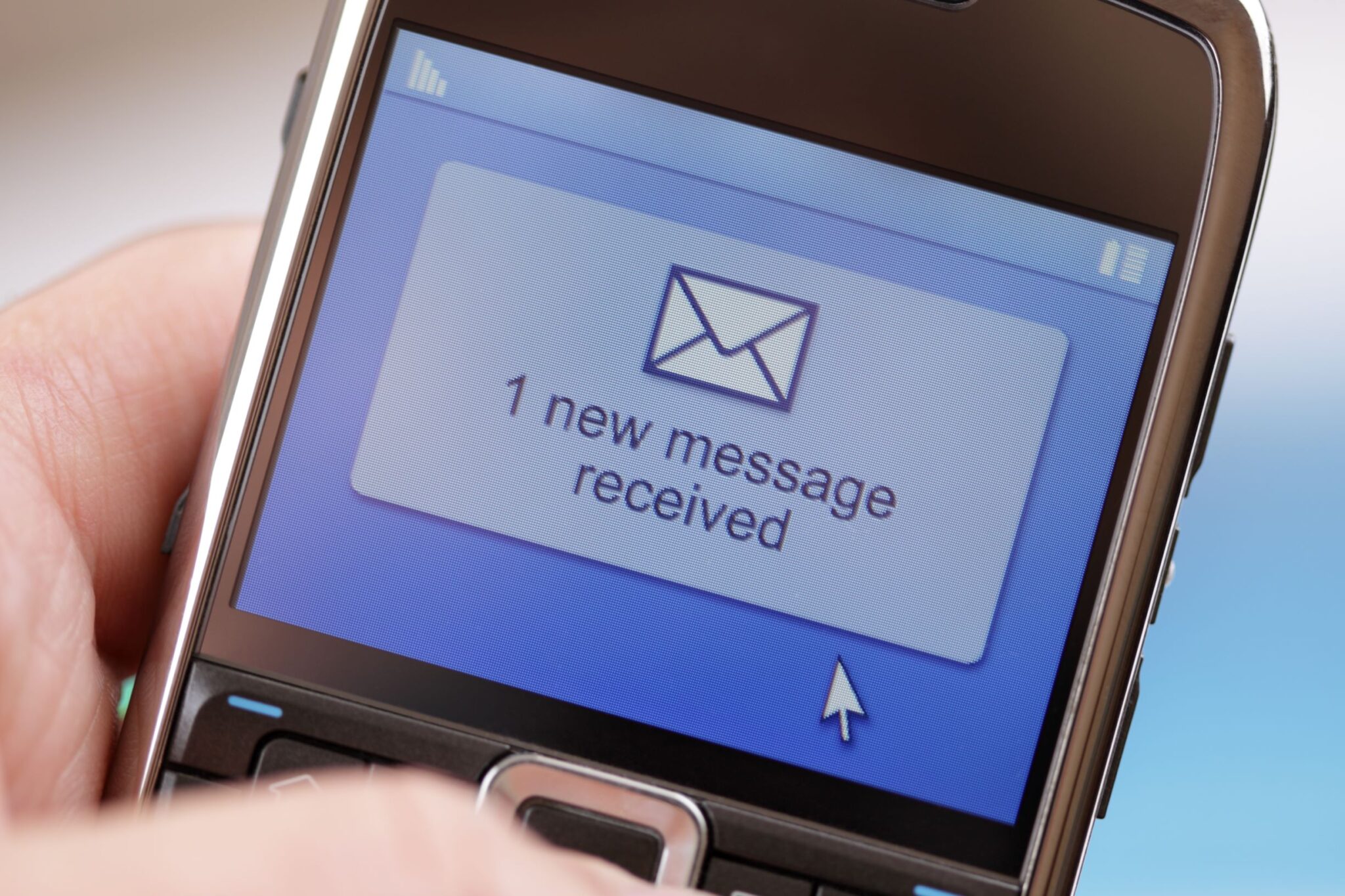Does Sending Someone Else's Personal Information via Email Constitute a Violation of Privacy?

Posting someone else’s personal information on bulletin boards or social media can often lead to privacy infringement. Similarly, emails containing personal information can also be contested in court as a violation of privacy.
The crime of defamation is defined in the Japanese Penal Code (刑法230条1項) as “publicly stating facts that defame another person’s reputation, regardless of whether those facts are true or not, is punishable by up to three years in prison or a fine of up to 500,000 yen.” Since emails are often private correspondence between individuals, they may not meet the “public” requirement for defamation, leading to a false sense of security. However, even if it does not constitute defamation, there is still a possibility of privacy infringement. Therefore, one must be cautious not to infracarelessly and indiscriminately provide others’ personal information via email, as it can infringe on their privacy.
Privacy Infringement through Email to a Third Party
There was a case where it was disputed whether or not it constituted defamation and privacy infringement when life insurance company employee C sent an email to third party B, which contained personal information that A, whom C had learned about through a consultation with acquaintance B about insurance enrollment, was certified as a level 3 mentally disabled person.
A, who got to know C through B, knew that C was working as a life insurance solicitor at a life insurance company and consulted about insurance enrollment. At that time, A was told that there were insurances that could not be enrolled if there were pre-existing conditions, so A revealed that he had suffered from depression or mental illness in the past and was certified as a level 3 mentally disabled person.
After this, A criticized C’s description in the diary that C publicly posted on the internet about their common hobby, outdoor life, and also spread defamatory content about C to third parties. C, who was not pleased with this, sent an email to B, a common acquaintance, expressing that A was a “net-dependent person who cannot adapt to society” and a “person lacking common sense”, and also included that A was certified as a level 3 mentally disabled person.
Related article: Thorough explanation of the right to privacy. What are the three infringement requirements?[ja]
Related article: What are the conditions for suing for defamation? Explaining the requirements and the average amount of consolation money[ja]
Disease Information and Privacy Infringement
A, who learned about this, filed a lawsuit against C seeking damages for defamation and privacy infringement, but after being rejected by the Tokyo Summary Court, A appealed.
The court did not acknowledge defamation, although the expression in question was included, because “it was only sent to a specific acquaintance and was not placed in a state where a large number of third parties other than the appellant and the appellee could read it, so the sending of the above-mentioned emails by the appellee did not immediately lower the objective social evaluation of the appellant.” In other words, it was not a case of “publicly” indicating the facts.
On the other hand, regarding privacy infringement,
“Such information related to privacy, depending on how it is handled, may harm the personal rights and interests of individuals, so it needs to be handled carefully. The appellee, who learned about this personal information when consulted about insurance enrollment by the appellant, should not arbitrarily disclose it to others without the consent of the appellant. The act of the appellee, who conveyed this personal information to B, who is just a common acquaintance and has nothing to do with insurance enrollment, by sending an email, is not recognized as necessary, and it betrays the reasonable expectation of proper management of information related to privacy provided voluntarily by the appellant, and it should be said that it constitutes a tort as it infringes on the privacy of the appellant.
Tokyo District Court, November 6, 2009 Judgment
It acknowledged this, but, “The appellant is recognized to have suffered mental distress due to the act of privacy infringement, and the personal information in this case can be said to be highly confidential for the appellant. On the other hand, as a form of privacy infringement, it only sent an email to a specific acquaintance, and the appellant had been telling a common acquaintance of the appellant and the appellee that he had suffered from depression or mental illness.” Therefore, the amount of consolation money was deemed to be 30,000 yen.
Even though the information about the disease is highly confidential, the amount of consolation money was low because “the form of privacy infringement was only sending an email to a specific acquaintance”, and B just happened not to know, but “the appellant had been telling a common acquaintance of the appellant and the appellee that he had suffered from depression or mental illness”.
Related article: Can it be said to be a privacy infringement if disease information is made public on the net?[ja]
Sending Emails Containing Content Based on Sexual Interest or Desire

A case has been reported where a woman claimed to have suffered significant mental and physical damage due to receiving malicious emails containing sexual harassment and being persistently stalked. She sought compensation for emotional distress based on the tortious act. She initially filed for mediation at the Tokyo Summary Court, claiming mental distress caused by the sent emails. However, the mediation ended unsuccessfully, and the plaintiff then filed a lawsuit at the Tokyo District Court.
Although the story is full of contradictions and questions, the female plaintiff (35 years old) and the male defendant (42 years old) met at a test supervision job site where they were both dispatched from the same staffing agency. The defendant gave the plaintiff a business card with his mobile phone email address on it. This led to them exchanging emails after the plaintiff sent an email to the defendant’s email address. In about half a month, approximately 120 emails were sent from the defendant to the plaintiff, and about 90 emails were sent from the plaintiff to the defendant.
During this time, the plaintiff claimed that malicious emails containing sexual harassment were sent. For example, an email from the defendant saying “Enjo-kosai (compensated dating) is not good” was sent in response to an email from the plaintiff stating that she was looking for a daily paid job. The defendant wrote, “If you’re looking for a short-term, daily paid job, I think XX is the best. It’s 10,000 yen for checking mobile devices. Enjo-kosai is not good.” When the plaintiff asked what “Enjo-kosai is not good” meant, the defendant replied, “Please forgive me if I caused any misunderstanding,” and they continued to exchange five emails each on the same day.
On another day, an email from the defendant saying, “I tried to enter a love hotel in Shibuya and forced a kiss, but she strongly resisted saying, ‘No, I can’t, I’m still devoted to my husband…’ and I had to retreat in regret → self-destructive ero” was sent in response to an email from the plaintiff saying, “I used to date a former JAL international flight attendant, three years ago…” The plaintiff replied, “Is that so?” and the defendant wrote, “We used to call each other ‘older sister’ and ‘Y-kun’. I tried to enter a love hotel in Shibuya and forced a kiss, but she strongly resisted saying, ‘No, I can’t, I’m still devoted to my husband…’ and I had to retreat in regret → self-destructive ero.” On the same day, the defendant sent nine emails and the plaintiff sent six emails.
Whether the Content of the Email Exceeds the Socially Acceptable Range
The court stated, “Even after the emails deemed to contain sexual harassment, the plaintiff continued to exchange emails with the defendant, and it cannot be recognized that she strongly rejected these emails or that she began to reject the defendant after these emails. It can also be recognized that the defendant could not perceive that the plaintiff was rejecting his emails.” Furthermore, since the two had only met face-to-face twice, the court ruled that there was no stalking behavior.
Considering the content, manner, and number of the defendant’s emails, the content, manner, and number of the plaintiff’s emails, and the purpose of the defendant’s emails inferred from these, it cannot be recognized that the sending of the defendant’s emails exceeded the socially acceptable range and was illegal, and it cannot be said to constitute a tort.
Tokyo District Court, September 30, 2009 (2009) Judgment
The court dismissed the plaintiff’s claim. In this case, the invasion of privacy was not recognized, but the judgment states,
Sending an email containing content based on sexual interest or desire against the other party’s will, considering the purpose, content, manner, etc. of the email, the degree and manner of the other party’s rejection, etc., if it exceeds the socially acceptable range, it should be considered as a tort that infringes on the other party’s sexual freedom, honor feelings, privacy, and other personality rights.
Tokyo District Court, September 30, 2009 (2009) Judgment
Even in one-on-one emails, sending an email containing content based on sexual interest or desire against the other party’s will can constitute a tort that infringes on the other party’s sexual freedom, honor feelings, privacy, and other personality rights if it exceeds the socially acceptable range. Although this is a lower court’s decision, it is a noteworthy indication. In this case, it was concluded that such an act was not committed, but it is pointed out that if you send an email containing content based on sexual interest or desire that the other party rejects, thinking “it’s just an email” or “it probably won’t be made public,” it may be considered an invasion of privacy.
Providing Private Emails to Third Parties
There was a case where a lawsuit was filed for privacy infringement when Y2, the representative of Corporation Y1, which was established primarily to conduct activities related to the promotion and support of artistic activities and conducts citizen-participation theater workshops, and his wife Y3, who cooperates in conducting workshops, provided emails to the person accused of sexual harassment without permission.
On January 13, 2008, a New Year’s party was held at Y2’s home office and rehearsal studio, attended by Y2, Y3, the plaintiff, B, and volunteers including members of the defendant corporation who had participated in the workshop.
After the New Year’s party, the plaintiff consulted Y3 by email and phone, claiming to have been subjected to indecent acts by B. On the 24th of the same month, a meeting was held at the office regarding this incident, attended by Y3, eight office staff members, and the plaintiff.
Around May of the same year, the plaintiff filed for mediation against B at the Tokyo Bar Association Dispute Resolution Center regarding this incident. However, B, claiming to have no memory of the incident due to being heavily intoxicated, consulted with Y2 and others. Y2 provided a document explaining the progress of the case, and Y3 provided the email sent from the plaintiff to B without hiding the email address. B submitted this in the mediation procedure. The plaintiff later withdrew the mediation application, but on August 19 of the same year, the plaintiff filed a complaint with the Metropolitan Police Department for attempted forcible indecency regarding this incident, which was accepted. On October 27 of the same year, a settlement was reached between the plaintiff and B, and the plaintiff withdrew the complaint. The details of the settlement are unclear, but it is inferred that B paid a certain amount of money to the plaintiff and apologized.
Afterwards, the plaintiff filed a lawsuit, claiming that Y2 and Y3, who had been trusted and sent emails as private correspondence, disclosed all of them directly to B without any consideration, such as masking the plaintiff’s email address, without permission. As a result, the plaintiff suffered mental distress, fearing that B might read the contents of the email and retaliate by sending defamatory emails to the plaintiff, spreading the sexual harassment to third parties, or disclosing the plaintiff’s personal information to third parties. Therefore, Y2 and Y3 bear liability for damages, and the defendant corporation bears employer’s liability.
Providing Emails Without Hiding Email Addresses
The court acknowledged that Y3 provided the email to B without hiding the email address, thinking that the plaintiff and B were friends because Y3 had participated in the New Year’s party, which was a volunteer party, and stated:
In this case, the plaintiff is raising the issue as sexual harassment, and B claims to have no memory due to being heavily intoxicated. Therefore, it is easy to infer that there may have been differences in perception or attitude about this incident between the plaintiff and B, and they were in a conflicting interest situation. Therefore, it is inappropriate and can be said to be a privacy infringement for defendant Y3 to provide a private email received from one party to the other party without their consent and without hiding the email address, and it can be said to constitute a tort.
Tokyo District Court, January 11, 2012 Judgment
However, no specific infringement actions such as receiving suspicious emails or being harassed were caused by the disclosure of this email, and a settlement has been reached with B, who is the disclosure destination, and the likelihood of infringement actions being taken in the future is extremely low. Also, Y3 did this because she thought that the participants of the New Year’s party knew each other’s contact information, and she did not intend to specifically infringe on the plaintiff. Moreover, she apologized for the disclosure of this email before the filing of this lawsuit, and since the New Year’s party was not hosted by the corporation, there is no room to interpret the actions of Y3 as the actions of an employee of the corporation. Therefore, Y2 and the corporation do not bear tort liability or employer’s liability, and only Y3 was recognized to pay 10,000 yen in damages.
In reality, it was fortunate that no harm came to the plaintiff, but if, as the plaintiff feared, defamatory or threatening emails had been sent, or if the sexual harassment had been spread to third parties, or if personal information such as email addresses had been disclosed to third parties, it could have caused serious damage. It was a reckless action that could be said to have given the “perpetrator” information about the damage.
Even in situations other than this, you should not disclose someone else’s email address to a third party or provide an email that is a private correspondence without permission.
Summary
If you suspect that your privacy has been violated through email, it is advisable to consult with an experienced attorney as soon as possible.
Privacy invasion via email is similar to harassment, and often the perpetrator may not be aware of their actions. Therefore, if left unchecked, it could potentially escalate. It could even develop into more malicious behavior, such as stalking, where the perpetrator continues to send messages despite the recipient’s clear discomfort.
In July 2013 (Heisei 25), the Japanese Anti-Stalking Law was revised to include persistent emails as a form of stalking, making it a criminal act.
This is a common issue that could happen to anyone. You could suddenly find yourself a victim or a perpetrator. Let’s change our awareness and be cautious.
Related article: What is Internet Stalking? Explaining the Countermeasures[ja]
Category: Internet





















